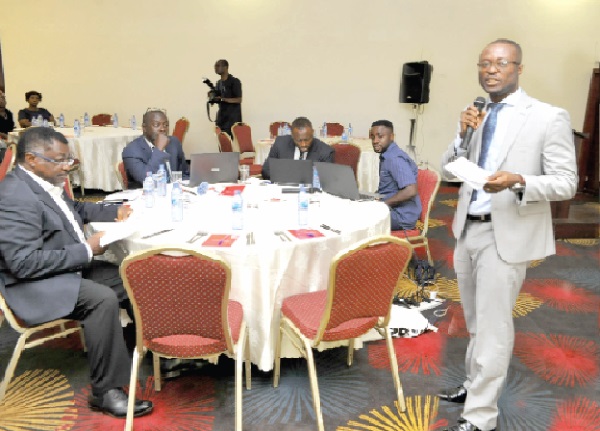Health experts from across the globe yesterday attended a one-day international conference in Accra that sought to promote the adoption of a technology that allows surgeries for certain diseases to be performed without cutting the patient’s skin.
Interventional radiology, a technology that involves the use of minimally invasive procedure to perform surgeries, does not require cutting into or using traditional surgical instruments to cut into or penetrate the patient’s body.
With the minimally invasive surgery method, risks related to blood loss that characterises the traditional surgery method are eliminated, as there is barely no cutting or bleeding.
“The use of the minimally invasive technology is a preferable option in that, since there is no cutting in the surgery process, infections are minimised, while there are no wounds,” the President of the Ghana Society of Interventional Radiology (GSIR), Dr Benjamin Dabo Sarkodie, explained.
The advantage of using the minimally invasive surgery, he said, lay in the fact that it reduced the risks associated with traditional surgery.
He said the process was effective for the treatment of medical conditions such as fibroid, leg ulcers and heart attacks.
Conference
The international conference was organised by the GSIR and brought together health professionals in Ghana and those from other parts of the world to discuss innovative ways of treating lung cancer and related medical conditions.
It also sought to educate the physician community on innovative therapies that were currently available in the country to effectively treat cancer-related diseases.
Participants discussed ways of creating awareness and promoting the use of interventional radiology.
Dr Sarkodie explained that while certain medical procedures required surgery to achieve full results, the use of interventional radiology could be appropriate for other medical conditions.
{loadmodule mod_banners,Nativead1}
Hepatitis B
A professor of Gastroenterology, Dr Lewis R. Roberts, urged members of the public to get to know their hepatitis B status, since the condition could degenerate into lung cancer if not properly checked.
He attributed the increase in cases of lung cancer to the increasing incidence of hepatitis B in the country and called for awareness creation and education as the way forward to encourage many people to go for voluntary testing for the condition.
“Ghana has a high incidence of chronic hepatitis B infections and there are many more people who are not testing for it and who, for that matter, do not know their status. It is best to test for it, so that if you have the infection, you can be treated.
“Those who have hepatitis B will have to be monitored because if that is not done, it will get to a stage where the liver cells will go through changes and become cancerous and this is dangerous,” he said.

